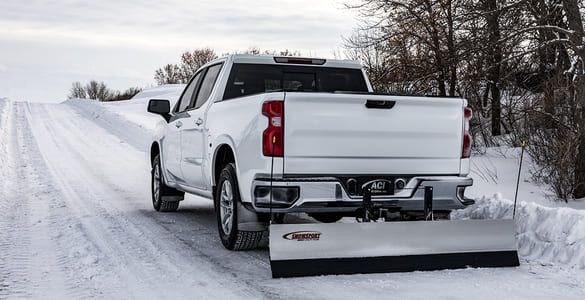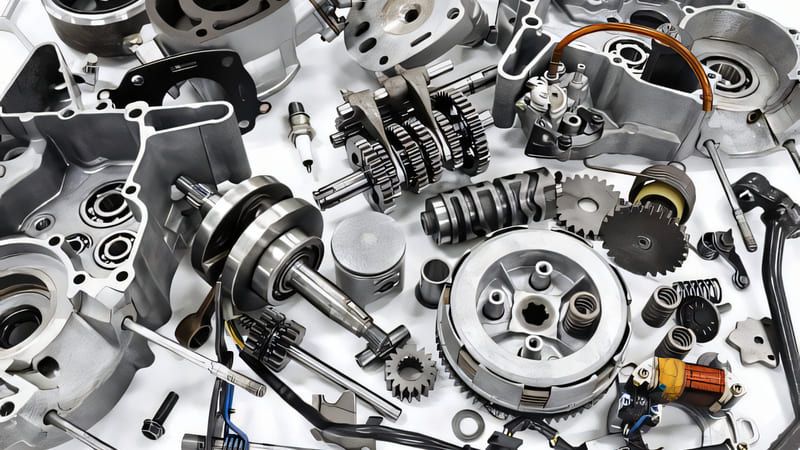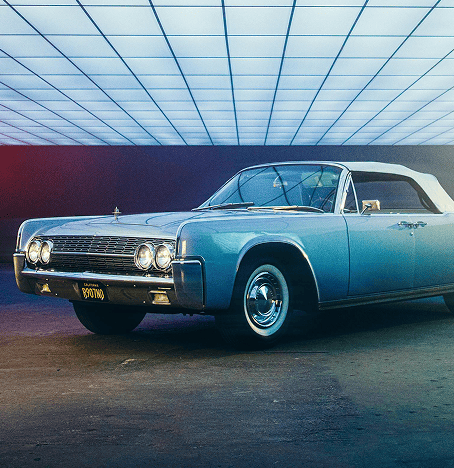What to Do About Bleeding Gums

Bleeding gums, of course, can be a situation that worries us a lot, which may indicate the potential health issues that we have not discovered. It might be not too serious at first, but the ignorance of it can finally lead to your severe problems of your oral health. It is important to understand the causes of the sulphur-like taste and take appropriate measures for oral hygiene and health in general.
1.Understanding the Causes
The main reason causes your gums to bleed is gingivitis which is an early teeth disease caused by the accumulation of plaque. Plaque is a film of bacteria which will stick to your teeth when you misuse the toothbrush and dental floss. If it is not cleaned in time, it will harden into tartar and excites your gums to inflammation and bleeding. Other reasons that cause bleeding gums include the changes of hormone, lack of vitamins (especially vitamin C and K), medicines and systemic diseases. Smoking and a poor diet can also contribute tothe problem.
2.Improving Oral Hygiene
One of the most efficient ways to cure bleeding gums is by oral hygiene. You ought to brush your teeth two times by using soft-bristled toothbrush and fluoride toothpaste.Be firm, but gentle — make sure to brush up along the gumline, where plaque accumulates. Daily flossing is just as essential since it removes food debris and plaque that a toothbrush can never get to between teeth. If you have difficulty traditional flossing, you might find a water flossor interdental brushes helpful. You also can add an antiseptic mouthwash to your routine to fight bacteria and soothe inflamed gums.
3.Seeking Professional Help
If you start to notice bloodshed when you’re brushing, and these issues aren’t improving with better oral hygiene, it’s time to see a dentist. A dentist can do a deep cleaning to get rid of the tartar buildup and indicate how serious your gum problem is. They might also suggest treatments like scaling and root planing, a deep-cleaning method that eliminates plaque and tartar from under the gumline. For more severe cases of gum disease, surgery may be required. To prevent and manage gum problems, regular dental check-ups, every six months if possible, are essential.
4.Diagnosing and Treating Root Causes of Illness
With bleeding gums, sometimes that indicates other health issues. If you suspect a vitamin has a deficit you should consult your health care provider to ascertain whether supplements or dietary changes are appropriate. In the case of a systemic condition such as diabetes, blood glucose levels need to be carefully managed due to the adverse effect of elevated glucose levels on gum disease. If medications are part of the problem, your doctor may change or reduce your prescription or recommend alternatives. Quitting smoking and consuming a balanced diet that includes plenty of fruits, vegetables, and whole grains can also greatly benefit gum health.
5.Lifestyle Adjustments
There are certain lifestyle changes you can make that can complement gum health as well. It helps reduce stress, which can lower the immune system and worsen inflammation. Staying hydrating helps maintain saliva levels, which naturally cleanses the mouth and neutralizes harmful acid. Steering clear of sugary and acidic meals can halt dates with plaque buildup and enamel erosion, two of the biggest culprits.
In brief, bleeding gums should never be ignored as they can indicate a need for better oral care or a visit to a dental professional. Gum bleeding is urgent but can be prevented if you improve your daily habits and hygiene techniques, visit a dentist, or treat underlying health conditions and lifestyle choices. So make sure to catch it early for a healthy mouth, and this will lead to a healthy body, so until next time, brush up on your oral health.
 Disclaimer:
Disclaimer:
The content provided on our blog site traverses numerous categories, offering readers valuable and practical information. Readers can use the editorial team’s research and data to gain more insights into their topics of interest. However, they are requested not to treat the articles as conclusive. The website team cannot be held responsible for differences in data or inaccuracies found across other platforms. Please also note that the site might also miss out on various schemes and offers available that the readers may find more beneficial than the ones we cover.
Related Websites
-
 Home & Garden
Home & GardenHow to Clean Hardwood Floors Without Damaging Them
Hardwood floor is one of the commonest floor in people’s houses, so, knowing how to clean is of great importance. Different from other types of floors, cleaning hardwood floors needs our attentions. The appeal of hardwood floors is often in their naturally rustic feel and you will want to maintain that by cleaning them in ways that are safe and effective. -
 Health & Wellness
Health & WellnessAmazing Benefits of Safflower Oil
Safflower oil offers numerous health benefits and versatile uses,derived from safflower's (Carthamus tinctorius) seeds, it has gained much attention in recent years. This golden-hued oil offers benefits in the kitchen as well as the beauty kit, thanks to its content of essential fatty acids, antioxidants and other nutrients. Here are the top benefits of safflower oil and what makes it a worthy daily staple.1.Promotes Heart HealthOne of the most well-known health benefits of safflower oil is its potential to promote heart health. Safflower oil is high in monounsaturated and polyunsaturated fat, primarily linoleic acid (an omega-6 fatty acid). These “good”fatsreducebad cholesterol and increase good cholesterol levels. It lowers the risk of atheromatosis, myocardial infarction, and stroke due to the elimination of cholesterol balance. Its anti-inflammatory action helps blood vessels expand healthy and lowers blood pressure.2.Supports Weight ManagementSafflower oil can support fat loss and higher quality body composition. According to scientific studies, the linoleic acid found in safflower oil aids in the breakdown of excess body fat specifically in the belly area, which is associated with an increased risk for metabolic-based illnesses. Of then how safflower oil makes the body more sensitive to insulin, so that it controls blood sugar more efficiently and does not hoard fat. Safflower oil can be part of a healthy diet.3.Boosts Skin HealthSafflower oil is very high in vitamin E, a potent antioxidant that helps to protect the skin from damage from free radicals caused by environmental factors from pollution and UV rays. An excellent moisturizer for all skin types, including oily and acne-prone, thanks to the light texture of the oil. It works to regulate sebum production, unclog pores and reduce inflammation, making it effective in treating acne and eczema. The world has seen countless retinols and other synthetically concocted anti-aging agents, but thankfully there is safflower oil that supports collagen production, contributing to skin suppleness and reducing fine lines and deep wrinkles.4.Strengthens HairSafflower oil is not justgood for skin, but also for hair. Rich in oleic acid which helps nourish and condition the scalp, avoiding dryness and flakiness. Safflower oil strengthens hair follicles andprevents breakage and improves hair growth when used regularly. It also provides shine and softness to hair, making it a natural substitute for commercial hair treatments.5.Anti-Inflammatory PropertiesWe know that chronic inflammation—of which the two above are symptoms and forms—is a root cause of many leading health problems, from arthritis and diabetes to heart disease. It has been shown that safflower oil reduces the inflammatory process using its bioactive compounds. For example, its omega-6 fatty acids can alleviate joint pain and stiffness in people with arthritis. Including safflower oil in your diet can be a great way for your body to fight inflammation and stay healthy overall.6.Rich in AntioxidantsThere are antioxidants in all fats, one of the most important being vitamin E, as well as phenoliccompounds that also promote health. These compounds neutralize free radicals, unstable molecules that pose a threat to cells and are implicated in aging and chronic diseases. Safflower oil supports immune function and reduces the risk of cancer and neurodegenerative diseases by protecting cells from oxidative stress.Generally speaking, safflower oil is an excellent cooking oil full of nutrients and health benefits.Whether it is the promotion of heart health, support of weight management, or improvement of skin and hair quality, its uses are broad and profound. Safflower oil is one of those natural and powerful tools for cooking and skin care. Like any food or skin care product, moderation is key, and it’s also best to check with a health professional before making big changes to your routine.So enjoy the benefits of safflower oil in your life. -
 Health & Wellness
Health & WellnessPreventing Kidney Stones: Effective Strategies for a Healthier Life
Kidney stones are a common painful condition that can be experienced by anyone. These solid deposits of minerals and salts can form in the kidneys, causing agonizing pain as they move through the urinary tract. While some people are genetically more prediscovered to grow kidney stones, there are several things that we can do to help prevent these from forming in the first place. Making some lifestyle changes and simply being cautious of dietary practices can greatly reduce your chances of developing this painful condition.1.Stay Well-hydratedThe best way to try to prevent kidney stones is to keep hydrated. Staying well hydrated by drinking adequate water during the day helps to dilute materials that create stones in the urine.Minerals and salts are less likely to crystalize and form stones when urine is dilute. Their reason behind this is that the normal, reliable advice says that you ought to be drinking 8–10 glasses, or 2–3 liters, of water a day, but whose to say what this refers to when there are so many factors in your environment, level of activity, health conditions, etc. That will determine how hydrated you need to be. Those with a history of kidney stones are often advised to drink enough water to produce around 2.5 liters of urine per day. Water remains the best, but other fluids (like herbal teas and citrus-based drinks) can help with hydration, and possible prevention, in some cases, because citrate (found in citrus-based drinks) can help reduce formation of stones.2.Balanced DietDiet is also an important part of preventing kidney stones. A diet that is low in salt and animal protein may help prevent stone formation. Excessive sodium intake can raise the amount of calcium in the urine, a major component of many kidney stones. So it’s important to limit processed foods, canned soups and salty snacks. Moreover, decreased animal proteins (e.g red meat, poultry/eggs) consumption will help to decrease the urinary levels of uric acid(another contributor to stone formation). We can certainly reduce our intake of animal proteins, and replace with more plant-based proteins, like beans, lentils, and tofu.3.Get Enough CalciumCalcium is also misunderstood with regard to kidney stones. Although calcium is a component of many stones, avoiding calcium is not the answer. In fact, consuming adequate calcium through fooddairy products or fortified plant-based options — can help prevent stones. That’s because calcium attaches to oxalate in the intestines, where it prevents oxalate from entering the bloodstream and being filtered out through the urine, where it can lead to stone formation. But speaking of extra calcium, it is also one of the minerals which shouldn't be taken in excess as it increases stone risk.4.Take in Oxalate-rich FoodsAnother food-related factor is the consumption of foods high in oxalate.Foods that are high in oxalate contain a compound that can combine with calcium in the urine to make calcium oxalate stones — the most common type of kidney stones. Spinach, rhubarb, beets, nuts and chocolate are all high oxalate. That doesn’t mean you have to completely ban these foods, but moderation, as well as balancing these foods with calcium-rich foods, may help in stone formation.So in summary, the avoidance of food that would cause kidney stones, drinking lots of fluid and maintaining a healthy life style solves the puzzle of staying away from kidney stones. Well, here you can really reduce your risk of this painful condition as long as you drink enough water, reduce salt and animal proteins, take enough calcium, control oxalate-rich foods and weight. Though none of these approaches guarantee immunity from kidney disease, they help support these important organs while improving your quality of life. So if you’re prone to kidney stones (or at higher risk), always check with your doctor directly for more tailored advice.
Featured Articles
-
 Automotive
AutomotiveTips to Know Before Buying a Car
-
 Automotive
AutomotiveTruck Plow Attachment: The Truck Savior in the Snow
-
 Automotive
AutomotiveFinding the Perfect Fit: A Guide to Choosing the Best Tires for Your SUV
-
 Automotive
AutomotiveLaFerrari vs Ferrari Enzo: A Clash of Generations in Ferrari’s Masterpieces
-
 Home & Garden
Home & GardenWhere to Buy Furniture Reliably: A Comprehensive Guide to Making the Right Choice
-
 Automotive
AutomotiveWhy Should We Choose Hertz Car Rentals?
-
 Health & Wellness
Health & WellnessManifestations of Liver Damage
-
 Automotive
AutomotiveFinding Cheap Motorcycle Components on eBay








